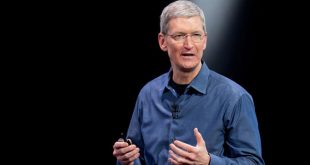We all know that nothing lasts forever. Even Bill Gates famously used to hold an annual dinner party for the bosses of companies like Compaq and Novell to discuss ‘extinction' and the fact that they would all, one day, no longer exist. Right now, Apple appears to have the big mo-mentum, but can it last much longer? KitGuru has a look at the possibilities for Wednesday's new launch and beyond.
At the end of 2004, Apple's shares were floundering around the $17 mark. Then rumours began about a new eco-system and, by Valentine's Day 2005, Apple stock was sitting around $35. As iTunes launched on 25th October 2005, the share price began to climb like a scrambled jet fighter. Today, it sits at $680 – leaving everyone asking the question, “Can it go much higher?”
In comparison, when Microsoft's windows XP ruled the world, the old software company's shares were trading at just under $60. Today, as we wait in dread for Windows 8, the price barely reaches $30.
Microsoft's future was based on the fact that it had a monopoly on the operating system needed for every PC being sold. These days, that is not only no longer true, but the systems being sold to deliver us messaging, moving media and music aren't PCs in the traditional sense of the word at all – and the giants of the past are under tremendous pressure to re-define themselves quickly.
Intel needs a share of the mobile and tablet space, Microsoft needs an operating system that people can afford and don't hate – and the WinTel love-child that is Dell, is being pushed hard to provide services after the hardware.
If Apple had invented the idea of selling hardware in behind a service, that would be something, but the past master in this field is IBM. The great, grand-daddy of them all has always been focused on selling the cool features of the hardware, but only as a way to sell services and support with huge margins after.
Everyone, including software-specialist Microsoft, got hung up on the ‘tin' itself. Apple uses ‘tin' to sell everything else. Especially content that changes all the time and there's no cost to reproduce. For example, music.
There is general agreement among all the KitGuru team that piracy, while wrong, can't be stamped out by sending a handful of people to prison for several hundred years. The way you get rid of something like music piracy, is to make music so affordable and easy to access, that people will pay you for that convenience. Apple's iTunes format of $1 per track (give or take) is too high to prevent piracy. But what if you could get what you wanted for 10 cents? In other words, an entire album (or streamed mix-tape) for £1. At that point, it would be come appealing.
Anyone who has a Napster account for £9 a month will be familiar with how well this works on an iPad. All the music you need (albeit from a limited selection), for one easy payment a month.
So where does Apple need to be in order to grow its future business more readily?

There are 2 obvious areas:-
1) In the living room. Sky bills billions because we pay sensible-sized bills as we go. Millions of people use Sky and pay their £50 a month (give or take) for the privilege. Add in voice communications & broadband and you have a fantastic way to invoice big. Apple is certainly looking at this whole area and if it could get a ‘billing box' next to your TV, that would be a win
2) Inside your phone/tablet. The SIM in your phone or tablet, is a gateway to billing. Right now, businesses across the world use a system of ‘least cost routing' to choose which network to carry your call etc. But when you use your mobile, it only goes out on your carrier. What if your iPhone or iPad could choose the service provider ‘on the fly'? As a customer, you would get the benefit of ‘least cost routing' – while Apple's billables would jump through the roof. Imagine the benefits for business users travelling abroad? Instead of buying a local SIM card in the new country, your device would automatically take care of that for you.
Whether Wednesday 12th September sees the new iPhone 5 or a smaller iPad or if those two products are one and the same, the market is sure to spend big. “Pent-up demand for the iPhone 5 is such that Apple will sell every one they can make” in the coming weeks, said Rob Enderle from analyst firm the Enderle Group.

.
KitGuru says: Apple launching new hardware is always cool and it will have a positive impact on share price, but it will be the ‘changes in how Apple can bill you AFTER you buy the new device' that will determine whether the Jobs legacy can move past $700 a share toward $1,000 a share.
Comment below or in the KitGuru forums.
 KitGuru KitGuru.net – Tech News | Hardware News | Hardware Reviews | IOS | Mobile | Gaming | Graphics Cards
KitGuru KitGuru.net – Tech News | Hardware News | Hardware Reviews | IOS | Mobile | Gaming | Graphics Cards


